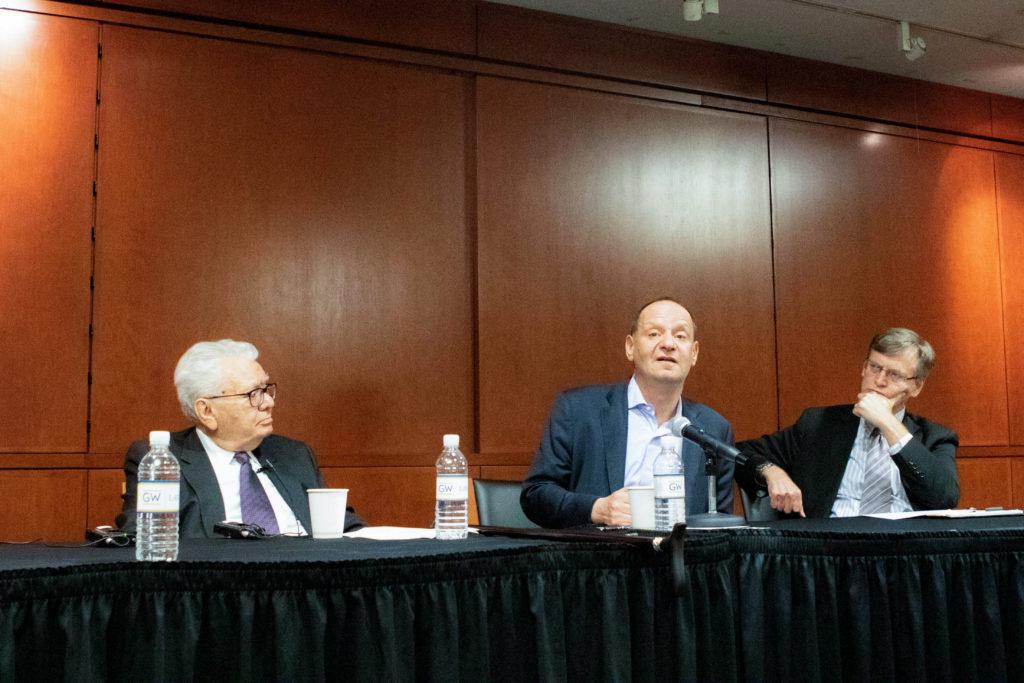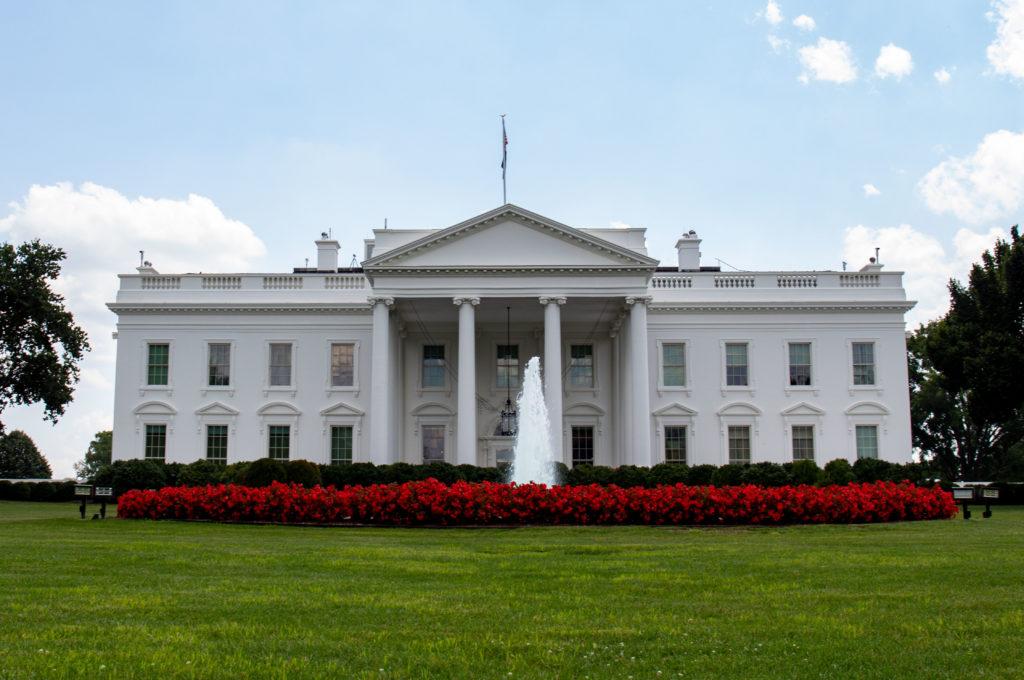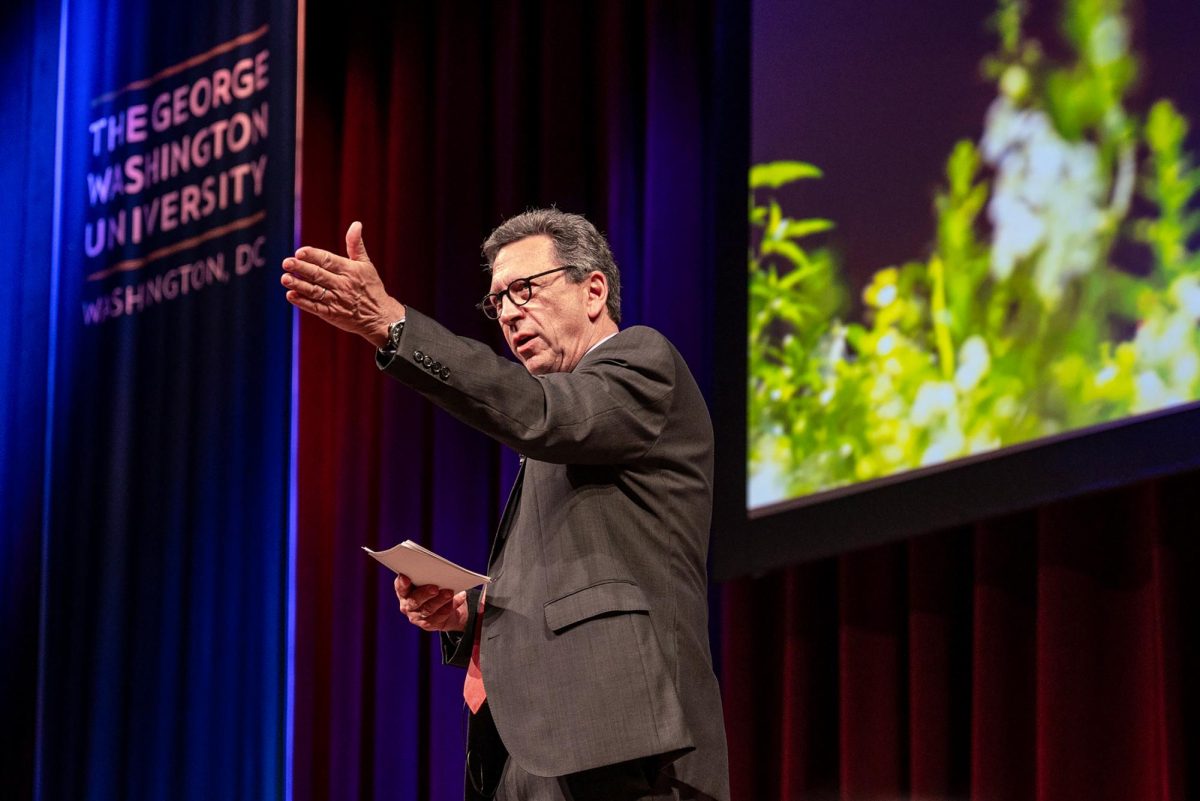Thomas “Tom” Buergenthal, a professor emeritus of comparative law and jurisprudence, former International Court of Justice judge and Holocaust survivor died in Miami, Florida last week. He was 89.
Buergenthal served as a GW Law professor from 1989 to 2000 when he left to work for the International Court of Justice — a United Nations judicial body that settles legal issues using international policies — and returned to the University to teach law from 2010 to 2015, according to a GW Law release last week. He also delivered the law school’s commencement keynote address in 2004 and is the namesake of the Thomas Buergenthal Scholarship, which provides merit and financial aid to students from Central and Eastern Europe and the former Soviet Republics seeking advanced degrees from GW Law.
Buergenthal was born in Ľubochňa, Slovakia in 1934 and fled to Poland in 1938 and 1939 to escape Nazi military occupation, but Nazis captured his family and forced them into a ghetto in Kielce after invading Poland in 1939, according to the United States Holocaust Memorial Museum’s Holocaust Encyclopedia. The encyclopedia entry states that Nazis then sent Buergenthal and his family to the Auschwitz concentration camp in 1944 and relocated him to the Sachsenhausen concentration camp in 1945, where he was liberated by Soviet forces later that year and eventually reunited with his mother after the war.
Rosa Celorio, the associate dean for international and comparative legal studies, said Buergenthal’s experiences as a child sparked his “quest” for progressing peace, justice and human rights, which showed in his teaching and international legal work.
“I highlight in particular his active role in conceptualizing and shaping so many principles that human rights lawyers apply on a daily basis to protect justice and dignity,” Celorio said in the release. “As a Holocaust survivor, he turned deep human suffering into a fruitful career and life full of hope, possibilities, and peace.”
Buergenthal moved to New Jersey in 1951 when he was 17, where he graduated from Bethany College in West Virginia in 1957 and New York University Law School as a Root-Tilden Scholar in 1960, the release states. He then earned Master of Laws and doctorate of Juridical Science degrees in international law from Harvard University, according to the release.
Before coming to GW Law, he served as the dean of Washington College of Law at American University from 1980 to 1985 and an endowed professor at the University of Texas and Emory University from 1985 to 1989, where he directed the human rights program for the Carter Center — a nongovernmental conflict resolution organization working to advance individual freedoms — according to the law school’s emeriti faculty information page.
Buergenthal also served as a judge and president for the Inter-American Court of Human Rights from 1979 to 1991, a judge for the Inter-American Development Bank’s Administrative Tribunal from 1989 to 1994, a commissioner on the United Nations Truth Commission for El Salvador from 1992 to 1993 and a member of the UN Human Rights Committee from 1995 to 1999, according to the release.
While at GW Law, Buergenthal served as the Lobingier Professor Emeritus of Comparative Law and Jurisprudence, a professorship appointment established by an endowment from the estate of Charles S. Lobingier, an author and judge who served on the Philippine Court of First Instance and United States Court for China in Shanghai, according to the release.
Edward Swaine, a research professor at the law school, said Buergenthal’s professional accomplishments, life experiences and character made him an “honor” to work with.
“He was unpretentious, patient, and remarkably kind; he communicated that he cared what you thought, whether you were a colleague or a student just starting out,” Swaine said in the release.
Buergenthal also wrote 13 books and several scholarly articles including “A Lucky Child: A Memoir of Surviving Auschwitz as a Young Boy,” which he published in 2007 and describes his experiences in the Holocaust, according to the release. He served on editorial boards for the American Journal of International Law, which reports on developments in public and private international and foreign relations law, and the Human Rights Law Journal, which researches global legal protection of human rights.
Buergenthal is survived by his wife Marjorie, sons Robert, John and Alan, stepchildren Cristina De las Casas and Sebastian Dibos and grandchildren Eliza, Chloe, Ruth and Aaron Buergenthal, Laura, Sebastian and Tomas De las Casas and Adrian and Mariel Dibos, according to his obituary. His funeral was held in Florida last Wednesday.








